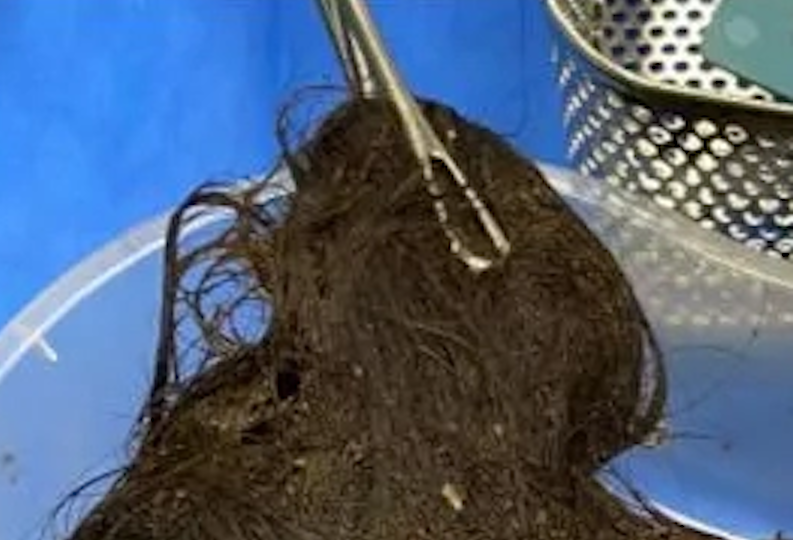
Before being rushed to the hospital, a young girl, whose identity remains undisclosed, experienced two episodes of passing out, bearing bruises on her scalp and face. Upon admission, medical professionals initiated tests and stumbled upon a concerning revelation during her examination: a mass nestled in her upper abdomen. Over the past five months, the teenager intermittently endured abdominal discomfort, escalating significantly in the fortnight preceding her hospitalization. Additionally, she had grappled with trichotillomania and trichophagia, two mental health disorders.
The subsequent CT scan uncovered a sizable mass within a distended stomach, accompanied by a tear in the stomach wall. Diagnosis: “Rapunze1 syndrome,” characterized by the extension of a hairball from the stomach into the intestines. Surgical intervention ensued, successfully extracting the mammoth hairball, which had taken the shape of the entire stomach (SEE PHOTO). Post-surgery, the teenager transitioned to the intensive care unit (ICU), receiving nourishment through a feeding tube inserted into her small intestine to facilitate stomach healing.
Following a smooth recovery, validated by hospital psychiatrists a week post-surgery, the girl was discharged. A month later, she exhibited no signs of complications, making commendable progress under dietary guidance and psychological support. Rapunzel syndrome, though exceedingly rare, is a bona fide medical ailment, with BMJ Case Reports documenting 89 instances.
Similarly, a woman presented symptoms such as abdominal pain, nausea, and vomiting, indicative of Rapunzel syndrome. The ingestion of hair poses grave risks, potentially causing intestinal blockages and fatalities. Predominantly afflicting females under 20, Rapunzel syndrome’s demographic spectrum extends from toddlers to individuals in their mid-50s.

